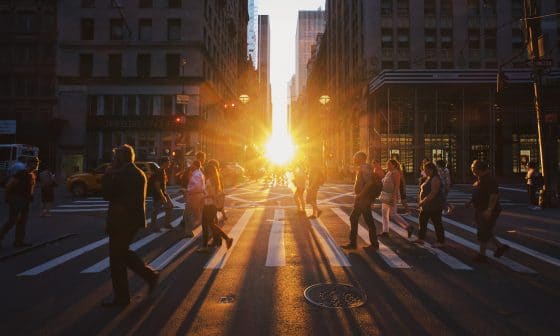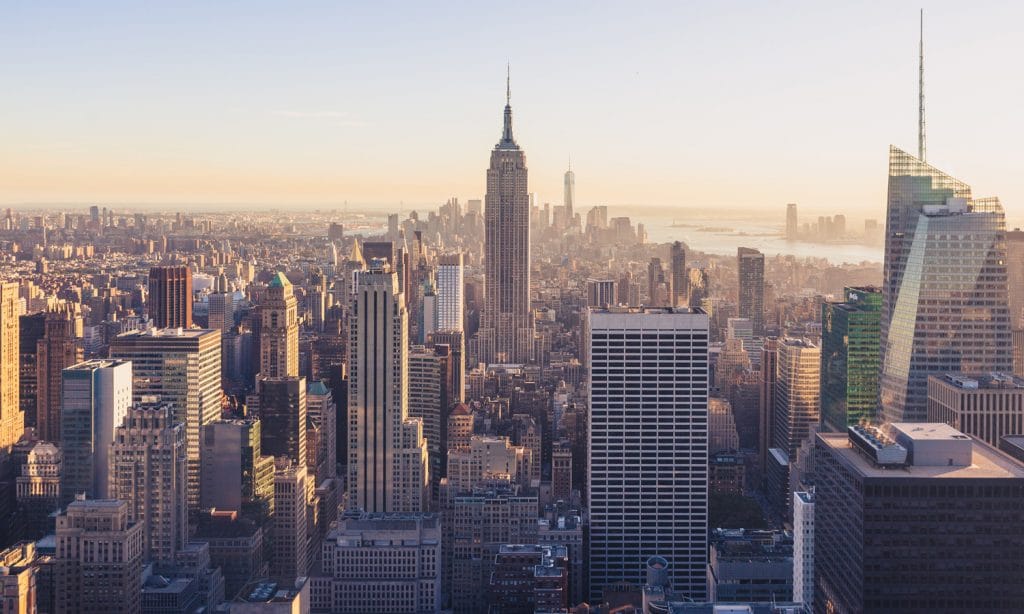"Gov. Andrew M. Cuomo vowed on Wednesday to legalize marijuana in New York"
Uh....you mean like he did in 2019? sigh
But I think the subtitle of this article says it all....nothing makes our professional political class salivate like the source of more taxes.
Cannabis Will Be Legalized in New York in 2020, Cuomo Vows
Legalizing the drug would pour hundreds of millions into the coffers of a state facing a $6 billion budget gap, he said.
Gov. Andrew M. Cuomo vowed on Wednesday to legalize marijuana in New York, prioritizing a push that fell apart last year amid tensions over who should be allowed to sell the drug and where the revenue should go.
The governor described the effort as a long overdue criminal justice reform that could help salve wounds in communities affected by the decades-long war on drugs.
“For decades, communities of color were disproportionately affected by the unequal enforcement of marijuana laws,” Mr. Cuomo said in his annual State of the State address. “Let’s legalize adult use of marijuana.”
The effort comes as the state faces down a $6 billion budget gap; on Wednesday, Mr. Cuomo, a third-term Democrat, said that legalized marijuana program could bring in $300 million a year in tax revenue, and billions of dollars more in economic activity when fully implemented, though that could be years away.
The governor’s proposal was part of a lengthy agenda that included bids to boost environmental spending, support small businesses and address a range of social ills, from overpriced feminine products to a lack of diversity on the state’s farms.
Little mentioned, however, were specific answers to how to solve the looming budget deficit, which is largely a result of overspending on Medicaid.
Mr. Cuomo did not say whether he supported raising taxes on the wealthy — a proposal popular with progressives in his party, including the Democratic-led State Assembly — or cutting spending to tackle the fiscal imbalance. Instead, Mr. Cuomo said that he wants to slice tax rates for small businesses by a third, something he said would help some 36,000 taxpayers.
At the same time, Mr. Cuomo retained his penchant for higher-priced infrastructure projects, proposing to invest $300 million to repurpose the Erie Canal to attract tourists, $9 million to build a drone facility upstate and an unspecified sum on an ambitious plan
to revamp Penn Station to accommodate an additional 175,000 riders by building eight new tracks.Again and again, Mr. Cuomo sought to position such projects — and other accomplishments from more than nine years in office — as an example of his brand of pragmatic progressivism, which he says emphasizes results over idealism.
“Progressive government by definition must be functional,” the governor said, returning to a common theme and citing his father, the former governor, Mario M. Cuomo.
The governor’s address kicks off the start of the year’s legislative session, and comes on the heels of a historic year in Albany, where lawmakers passed
major new laws on
rent,
climate change and
congestion pricing, among other issues.
Last year was also a period of transition for Mr. Cuomo: For the first eight years in office, Mr. Cuomo worked with a Republican State Senate, which often backed his pleas for fiscal austerity and batted back progressive reforms. That changed in the 2018 midterm elections, when Democrats took control of the Senate with the help of a number of young, liberal candidates who repeatedly challenged Mr. Cuomo, sometimes leading to
heated conflicts.
That rift has already surfaced this year, as the governor and other Democrats grapple with the political fallout from a new law that sharply reduced the use of cash bail. The law went into effect on New Year’s Day, and since then, concerns over a spate of anti-Semitic incidents and other recent
alleged crimes committed by those released have led to calls for changes in the law, including by Mr. Cuomo himself.
Mr. Cuomo made no mention of the bail reform on Wednesday during his speech, which included quotations from George Washington, Henry David Thoreau and the singer-songwriter Leonard Cohen, and an extended nautical theme, with mentions of rocky shores, rough seas, and a “political and social superstorm” of anger and divisive rhetoric.
Considering the state’s financial straits, Mr. Cuomo leaned heavily on proposals that would need little or no state funding, like banning gun ownership for people who have committed certain misdemeanor crimes in other states,
banning foam food containers and outlawing synthetic opioids similar to fentanyl.
The governor’s marijuana proposal came with numerous caveats: He said that he intended to coordinate New York’s plan with similar efforts in Pennsylvania, New Jersey and Connecticut, though his office later clarified that the state would not wait on other states to pursue its own plan.
He also proposed that New York’s state university system be enlisted to do research on marijuana and its effects, likening the drug’s potential peril to that of opioids.
“The federal government failed Americans with opioids,” Mr. Cuomo said, in a briefing book released with the governor’s speech. “And we cannot allow that to happen with cannabinoids.”
The governor’s agenda — entitled “Making Progress Happen” — also outlined a robust list of social proposals, with many geared at improving women’s status in the state, including studies to increase representation for women on corporate boards (California just enacted a
law guaranteeing that) and $20 million in grants for female entrepreneurs. Mr. Cuomo also promised to take aim at the so-called pink tax, by which businesses charge women more for services and personal care items.
Mr. Cuomo has trumpeted his actions on gay rights — including legalizing same-sex marriage in 2011. His top-line proposal for the L.G.B.T.Q. community — permitting paid gestational surrogacy — had failed to gain enough support in 2019, after some advocates for women’s rights and religious groups
argued that such surrogacy commodifies the body.
On Wednesday, even before Mr. Cuomo’s speech ended, the state’s Catholic Conference, said “surrogacy is a dangerous policy that will lead to the exploitation of poor, vulnerable women, and has few safeguards for children.”
Mr. Cuomo also said that he supported paid sick leave for workers of businesses with five or more employees, and wanted to codify benefits and protections for workers of the growing gig economy, although he did not offer specifics.
Other ideas were recycled, like an equal rights amendment to establish factors such as sex and sexual orientation as protected classes; a law change to allow movie theaters to sell alcohol; and a law to allow automatic voter registration. That idea passed last year, but was waylaid by technical legal concerns; the legislature will pass it again on Thursday. The governor also brought out a revised version of an idea that he recently vetoed: legalizing e-bikes and scooters.
Like last year, Mr. Cuomo made the environment a cornerstone of his agenda: He proposed leveraging $3 billion in bonds to restore wildlife habitats and mitigate flood risks, while offering plans to preserve 4,000 acres of land in the Mid-Hudson Valley and upgrade the wastewater treatment plant at Lake George, a popular vacation spot.
“No economic strategy, no social justice reform, no education policy will be worth a damn if we don’t have a planet that we can live on,” Mr. Cuomo said.
Mr. Cuomo also took aim at sexual predators, proposing legislation to ban high-risk sexual offenders from New York City’s subway and prohibit them from using social media, dating apps and video game chats.
If 2019 was any indication, Mr. Cuomo tends to get what he wants from his yearly wish list. The overwhelming majority of his proposals were approved last year, except for marijuana legalization.
The governor suggested he would insist on more accountability from local governments in the way they manage Medicaid programs, setting up a potential clash with New York City and Mayor Bill de Blasio, the governor’s intraparty rival, who called the proposal concerning. Cuomo administration officials later said that they did not intend to ask local governments to pay more, but rather root out “waste, fraud and abuse within the system.”
In recent years, Mr. Cuomo had chosen to unveil his budget during the State of the State address. But facing a budgetary quagmire this year, the governor decided he would present his budget separately later in the month.
“It’s the $29 billion elephant in the room and he knows it,” said Andrew Rein, the president of the Citizens Budget Commission, a fiscal watchdog, referring to the state’s projected cumulative budget gap of $28.8 billion through 2023.
“When you have a structural problem, the longer you delay addressing it the larger it becomes,” he added.

 They have a strain of CBD bud called 'Lemon Sauce' that is my fav from all the local strains I've tried.
They have a strain of CBD bud called 'Lemon Sauce' that is my fav from all the local strains I've tried.


